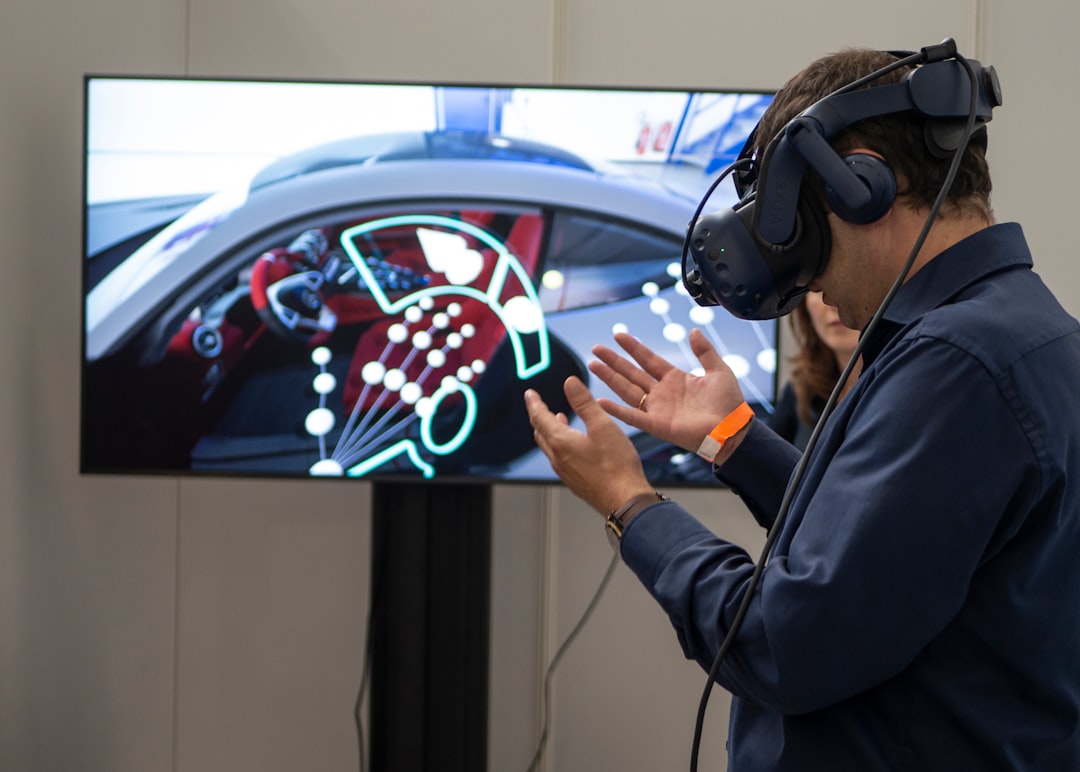The concept of the Metaverse has evolved from a niche idea in science fiction to a burgeoning reality that captivates technologists, entrepreneurs, and everyday users alike. Originally popularized by Neal Stephenson’s 1992 novel “Snow Crash,” the term refers to a collective virtual space that merges physical and digital realities, allowing users to interact with each other and the environment in immersive ways. This digital universe encompasses a variety of experiences, from virtual reality (VR) and augmented reality (AR) to social media platforms and online gaming.
As technology advances, the Metaverse is increasingly seen as a new frontier for human interaction, creativity, and commerce. The Metaverse is not merely a single platform but rather an interconnected ecosystem of virtual environments where users can create, explore, and engage. Major tech companies like Meta (formerly Facebook), Microsoft, and Google are investing heavily in developing their own versions of the Metaverse, each with unique features and functionalities.
This race to build the Metaverse has sparked discussions about its potential implications for society, economy, and culture. As we delve deeper into this digital realm, it becomes essential to understand both its promising benefits and the challenges it presents.
Key Takeaways
- The Metaverse is a collective virtual shared space, created by the convergence of virtually enhanced physical reality and physically persistent virtual reality.
- Potential benefits of the Metaverse include enhanced social interactions, immersive experiences, and new opportunities for creativity and innovation.
- Criticisms and concerns about the Metaverse include issues related to privacy, security, and the potential for addiction and escapism.
- The impact of the Metaverse on society includes changes in how we work, socialize, and consume entertainment, as well as potential effects on mental health and well-being.
- Economic opportunities in the Metaverse include virtual real estate, digital goods and services, and new forms of employment and entrepreneurship.
- Ethical and privacy considerations in the Metaverse include issues related to data ownership, digital identity, and the potential for discrimination and exploitation.
- The role of regulation in the Metaverse is crucial for addressing concerns related to privacy, security, and fair competition, while also fostering innovation and protecting user rights.
- In conclusion, the future of the Metaverse holds great potential for positive impact, but also requires careful consideration of ethical, privacy, and regulatory issues to ensure a safe and inclusive virtual environment.
Potential Benefits of the Metaverse
Immersive Social Experiences
Platforms like VRChat are already offering immersive social experiences, from attending virtual concerts to participating in art exhibitions. Users can interact with avatars that represent their identities, creating a sense of community and connection that was previously impossible.
Revolutionizing Education and Training
The Metaverse has the potential to revolutionize education and training by providing interactive learning experiences that are not possible in traditional settings. Virtual classrooms can offer students a hands-on approach to learning, enhancing understanding and retention of knowledge. For example, medical students can practice surgical procedures in a risk-free environment using VR simulations, while history students can explore ancient civilizations through immersive reconstructions.
Enhancing Employee Training
Companies are also adopting virtual training programs for employees, allowing them to develop skills in realistic scenarios without the associated costs of physical training. This approach can make employee training more engaging, effective, and cost-efficient.
Criticisms and Concerns about the Metaverse

Despite its potential benefits, the Metaverse is not without its criticisms and concerns. One major issue is the risk of addiction and escapism. As users immerse themselves in these digital worlds, there is a growing fear that they may neglect their real-life responsibilities and relationships.
The allure of an idealized virtual existence can lead individuals to spend excessive amounts of time online, potentially resulting in negative mental health outcomes. Studies have shown that prolonged engagement with virtual environments can contribute to feelings of isolation and anxiety when users return to reality. Another significant concern revolves around the issue of digital divide and accessibility.
While the Metaverse promises inclusivity, not everyone has equal access to the necessary technology or high-speed internet required to participate fully. This disparity can exacerbate existing inequalities in society, leaving marginalized groups further behind. Additionally, there are worries about the potential for harassment and toxic behavior within these virtual spaces.
Just as social media platforms have struggled with issues of bullying and hate speech, the Metaverse may face similar challenges unless robust moderation systems are implemented.
Impact of the Metaverse on Society
| Aspect | Impact |
|---|---|
| Communication | Enhanced virtual interactions and global connectivity |
| Education | New immersive learning experiences and access to global resources |
| Workforce | Remote work opportunities and virtual collaboration |
| Economy | New business opportunities and virtual marketplaces |
| Social interaction | Impact on mental health and social dynamics |
The emergence of the Metaverse is poised to have profound implications for various aspects of society. One area that stands to be transformed is entertainment. The way we consume media is already shifting towards more interactive experiences, and the Metaverse takes this trend to new heights.
Virtual concerts featuring popular artists can draw millions of attendees from around the globe, creating a shared experience that transcends physical limitations. For example, Travis Scott’s concert in Fortnite attracted over 12 million players, showcasing how virtual events can redefine entertainment consumption. Furthermore, the Metaverse could reshape our understanding of community and belonging.
In these digital spaces, individuals can find like-minded people who share their interests and passions, regardless of geographical location. This sense of belonging can be particularly beneficial for those who feel isolated in their physical environments.
However, this also raises questions about the nature of identity and authenticity in virtual spaces, as users may curate their online personas in ways that differ significantly from their real-life selves.
Economic Opportunities in the Metaverse
The economic potential of the Metaverse is vast and multifaceted. As businesses begin to recognize the value of virtual spaces, new markets are emerging that cater to both consumers and creators. Virtual real estate has become a hot commodity, with platforms like Decentraland allowing users to buy, sell, and develop digital land.
Investors are pouring money into these virtual properties, anticipating that they will appreciate in value as more people flock to the Metaverse for socializing and commerce. Additionally, brands are exploring innovative ways to engage with consumers within these digital realms. Virtual storefronts enable companies to showcase their products in immersive environments where customers can interact with items before making purchases.
For instance, luxury fashion brands are hosting virtual fashion shows that allow users to try on clothes using AR technology. This not only enhances customer experience but also opens up new revenue streams for businesses willing to adapt to this evolving landscape.
Ethical and Privacy Considerations in the Metaverse

As the Metaverse continues to develop, ethical considerations surrounding user privacy and data security become increasingly critical. The collection of personal data is a common practice among tech companies; however, in a fully immersive environment where users share more than just basic information—such as biometric data through VR headsets—the stakes are higher. There is a pressing need for transparent data policies that protect users from exploitation and ensure their information is handled responsibly.
Moreover, issues related to consent and user agency must be addressed within the Metaverse. As users navigate these digital spaces, they may encounter situations where their actions or interactions are recorded or monitored without their explicit consent. This raises questions about ownership of personal data and how it can be used by corporations or third parties.
Establishing clear guidelines around consent will be essential for fostering trust among users as they engage with these new technologies.
The Role of Regulation in the Metaverse
The rapid development of the Metaverse has outpaced existing regulatory frameworks, leading to calls for comprehensive policies that govern its use. Governments around the world are grappling with how best to approach this new digital frontier while balancing innovation with consumer protection. Issues such as intellectual property rights, user safety, and content moderation require careful consideration as they intersect with existing laws.
Regulation could play a pivotal role in shaping the future of the Metaverse by establishing standards for user behavior and corporate responsibility. For instance, guidelines could be developed to address harassment or discrimination within virtual spaces, ensuring that users feel safe while engaging with others. Additionally, regulations surrounding digital currencies and transactions will be crucial as commerce expands within these environments.
By proactively addressing these challenges through thoughtful regulation, stakeholders can help create a more equitable and secure Metaverse for all users.
The Future of the Metaverse
As we look ahead to the future of the Metaverse, it is clear that this digital landscape holds immense potential for transforming how we interact with one another and engage with technology. While there are significant benefits to be gained—from enhanced social connections to innovative economic opportunities—there are also pressing concerns that must be addressed through thoughtful dialogue and action. The balance between fostering creativity and ensuring safety will be crucial as we navigate this uncharted territory.
Ultimately, the success of the Metaverse will depend on collaboration among technologists, policymakers, businesses, and users themselves. By working together to establish ethical standards and regulatory frameworks that prioritize user well-being while encouraging innovation, we can shape a Metaverse that enriches our lives rather than detracts from them. As this digital frontier continues to evolve, it will undoubtedly challenge our perceptions of reality and redefine what it means to connect in an increasingly interconnected world.
If you’re interested in exploring the concept of the metaverse further, you may want to check out the article “Metaverse and the Real World: Integrating Physical and Virtual Spaces”. This article delves into how the metaverse can bridge the gap between the physical and virtual worlds, offering new possibilities for interaction and collaboration.
FAQs
What is the metaverse?
The metaverse is a collective virtual shared space, created by the convergence of virtually enhanced physical reality and physically persistent virtual reality. It is a concept that has gained popularity in recent years due to advancements in technology and the increasing integration of virtual and augmented reality experiences.
What are some examples of the metaverse?
Some examples of the metaverse include virtual worlds such as Second Life, social media platforms like Facebook’s Horizon, and online gaming environments like Fortnite and Roblox. These platforms offer users the ability to interact with others, create and customize their own virtual spaces, and engage in various activities and experiences.
How is the metaverse being used in the real world?
The metaverse is being used in various industries for purposes such as virtual meetings and events, virtual commerce and shopping experiences, virtual training and education, and entertainment and gaming. Companies are also exploring the potential of the metaverse for marketing, advertising, and brand engagement.
What are some concerns or criticisms about the metaverse?
Some concerns about the metaverse include issues related to privacy and data security, potential addiction and negative impacts on mental health, and the potential for creating further divides between those who have access to and can afford to participate in the metaverse and those who do not.
What are the potential benefits of the metaverse?
The metaverse has the potential to offer new opportunities for social interaction, creativity, and collaboration. It could also provide new avenues for business and economic growth, as well as innovative solutions for education, healthcare, and other societal challenges.

Leave a Reply